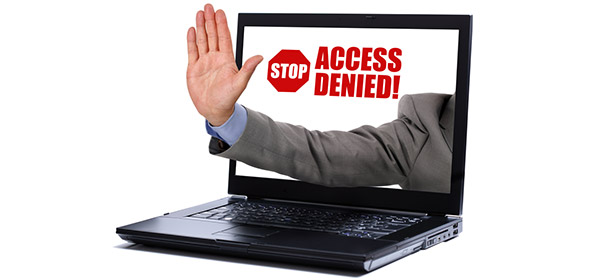Many Australians may soon have to change their internet behaviour after a controversial copyright Bill passed through Senate earlier this week.
The Copyright Amendment (Online Infringement) Bill 2015 will mean that Australians may find it a lot more difficult to download pirated movies and music once the proposed legislation becomes law. The Bill passed 37–13, with both the Coalition and Labor’s support. The Greens opposed it, along with Senators David Leyonhjelm, Glenn Lazarus and Ricky Muir.
The new Bill means that rights holders can apply to a Federal Court to block access to websites offering free content that violates copyright law. Should they be successful, ISPs such as Telstra would then have to comply with a court order to shut off access to the offending sites – potentially at the ISP’s expense.
The film, music and TV industries are happy with the outcome. Australian Home Entertainment Distributors Association’s Simon Bush has been a staunch proponent for website-blocking laws for many years. “It’s a fantastic day and a really positive sign for the creative content industry, which can invest more as a result,” he said.
“We have a huge problem with these sites,” said Vanessa Hutley from Music Rights Australia. “They make only money for the people who operate it, and so this will be an important arm for rights holders to protect their rights.”
Greens Senator Scott Ludlam believes there could be a better solution.
“There is increasing evidence to suggest that site-blocking is not the most effective means of stopping piracy,” claims Senator Ludlam. “The government is ignoring the opportunity to work with content providers and remove the reasons for people currently accessing content through torrents and other sources. Just deliver content in a timely and affordable manner, and piracy collapses.”
Australian National University’s Dr Matthew Rimmer says, “It’s a very dark day for the internet in Australia because there’s been bipartisan support for this Luddite censorship Bill.” Dr Rimmer is worried that controversial information that may be in the public interest, such as that released by WikiLeaks could be censored at the government’s whim.
There are also concerns that the new Bill could block providers of legitimate content, which happened in an embarrassing ASIC mishap not so long ago, when the watchdog mistakenly blocked access to about 250,000 innocent websites whilst attempting to obstruct just one fraudulent site.
A lack of definitions within the Bill, as well as several other issues, also remain unaddressed. The government has indicated that it will review the effectiveness of the Bill in 18 months time.
Read more at www.smh.com.au
Read more at www.sbs.com.au
Read more at www.engadget.com
Read more at www.arstechnica.com
Opinion: Is this the way to go?
It’s no surprise that the film and TV industry are the biggest advocates for this Bill. After all, they are the ones feeling the pinch when their content is freely distributed online. And if protecting Australian jobs and business interests are the primary motives behind passing such a law, then this could be a windfall.
But apart from the obvious benefits to the music, film and TV industries, how will Australia’s new copyright law changes affect consumers?
As far as your download habits; it depends upon what you do now. If you are one of the many Australians who download your favourite TV shows to watch at your leisure, the proposed legislation, if passed, will make it more difficult for you to locate this type of content.
I spoke to Ryan Boutland, our resident tech guru, and one of his concerns is that if streaming services, such as Presto and Netflix, become the primary vehicle for watching creative content online, then our internet infrastructure will not cope with the load. This means that whatever paid content you view will be of poorer quality. And if you think our internet speeds are slow now, just wait until everyone is streaming online content.
And we both share concerns that we may be venturing down a dangerous path of censorship, similar to countries such as China, North Korea and Cuba, which have total control over all internet-connected computers.
Still, ISP filtering may not be all too effective, as browsers can simply use web proxies and VPNs to side step any blocks that are imposed. And contrary to the belief that this new law will prevent users from accessing illegal content, traffic to The Pirate Bay actually increased after the UK introduced similar legislation.
Assuming ISPs will have to cover the estimated $130,000 per year in maintaining this law, will we, as consumers, then have to pay even more for our already below standard internet? Well, that may be up to the Federal Court to decide. One thing’s for sure; the ISPs won’t just wear the costs.
And on the subject of costs, according to consumer advocate CHOICE, it’s prohibitive prices and the lack of available content that are the main reasons many currently resort to piracy in the first place.
Scott Ludlam may have a point about the new copyright laws not being the right way to go. We’ll have to wait and see the results in 18 months time. That is, if we’re allowed to see them.
What do you think of the new copyright laws? Do you feel that the government is actually looking after the interests of Australians, or merely acting as a puppet for ‘big media’? Will the new laws affect you?

